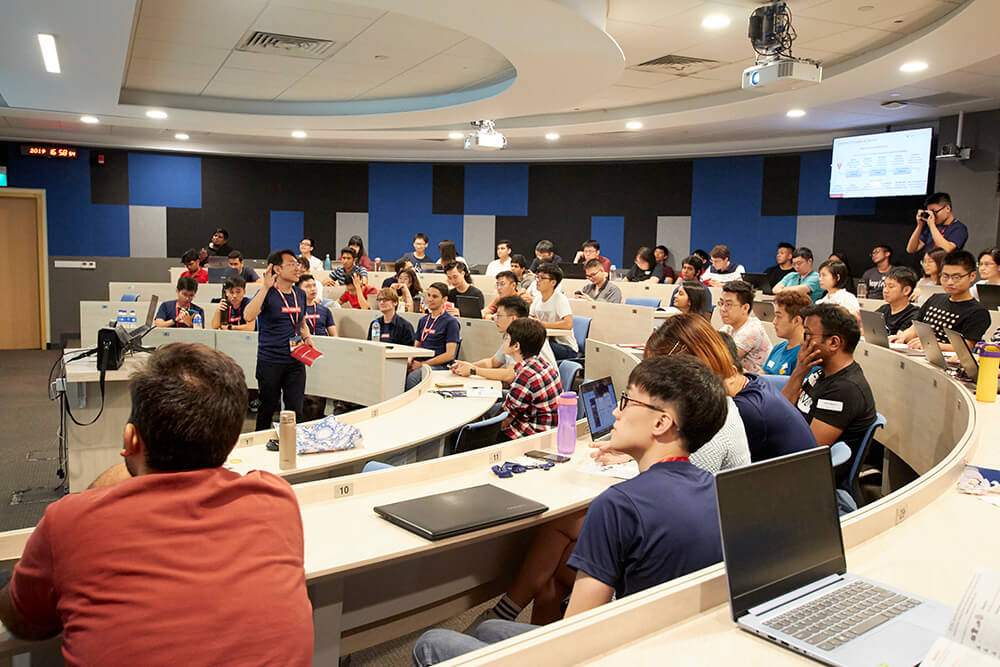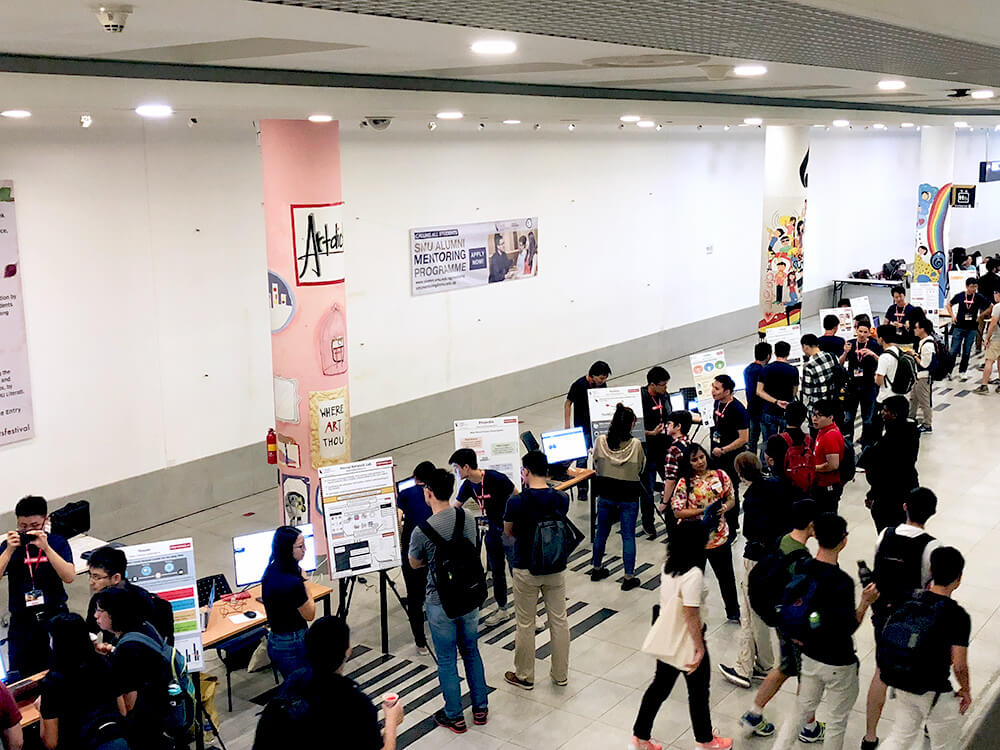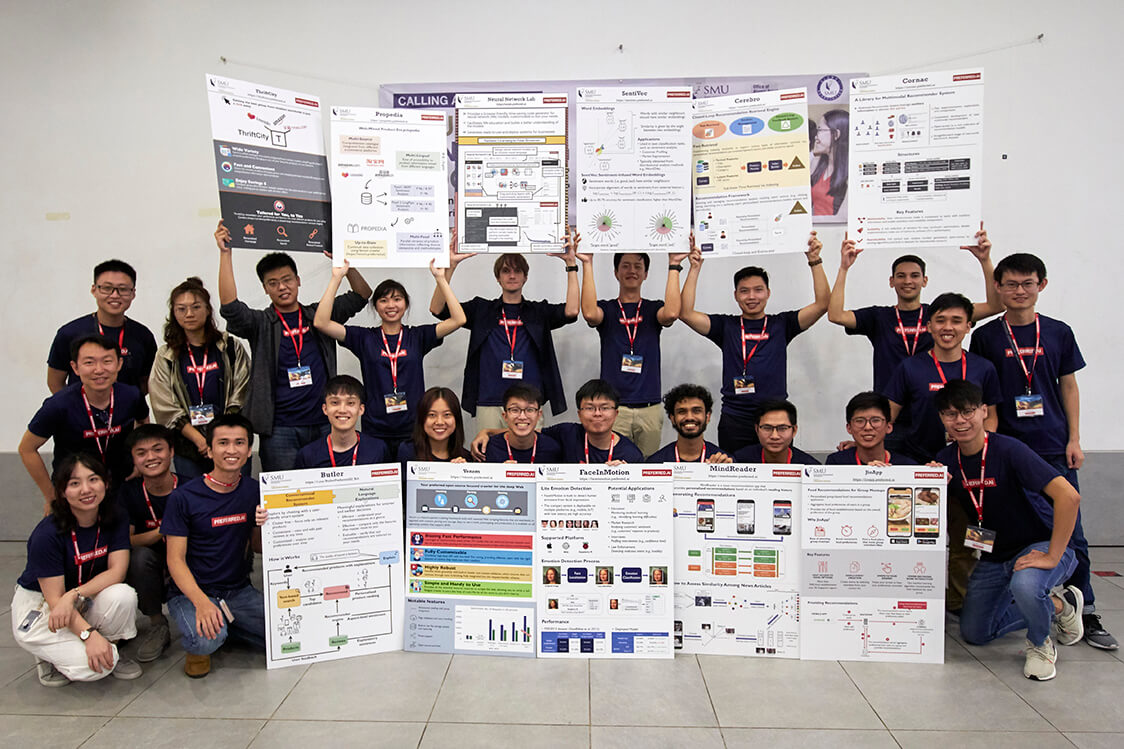By the SMU Postgraduate Research Programmes Team
What exactly is Artificial Intelligence (AI)?
While most of us are aware that AI is the intelligence and ability demonstrated by machines primarily to perform tasks that require human intelligence, chances are we are unaware of what lies beyond this concept.
Preferred.AI, a research group headed by Associate Professor Hady Lauw from the SMU School of Information Systems, undertakes to explore just that. The team—consisting of PhD students, research scientists, research engineers and visiting research students from SMU, as well as affiliates of SMU—is determined to push the limits on learning user preferences to improve the effectiveness and efficiency of recommendations using data mining, machine learning and artificial intelligence. Their research encompasses designing algorithms to understand the behaviours and preferences of users, and then applying these algorithms to develop intelligent applications.
To share more about the current projects they are actively pursuing, the team at Preferred.AI organised the Techfest 2019 on 23 August 2019, which saw over 90 participants comprising undergraduates, postgraduates, staff and members of the public. Insights shared at the event included talks on their recent AI publications, useful libraries to build AI to machine-learning-based models and applications, demonstrations and applications with novel use cases, and information on how interested parties could collaborate with the team on future projects.

Associate Professor Hady Lauw kicked off the session with an overview of the team and the activities they conducted
During the kick-off session for the talks segment at TechFest 2019, Assoc Prof Hady Lauw explained that in the course of their research into advancing AI and machine learning, a particular area of focus was in “looking at ways to model user preferences in order to enable applications such as personalised recommendations”. One such recommendation model shared by Aghiles Salah, a research scientist at SMU, was Probabilistic Collaborative Representation Learning (PCRL). He shed light on the importance of recommendation models in providing better prediction to streamline options and provide users with more suitable recommendations.
Elaborating on the topic of making relevant recommendations to users, fellow presenter Truong Quoc Tuan, a third-year SMU PhD in Information Systems student, shared how his research aims to tackle the issue of data sparsity in terms of the interaction between a user and the item (or product). He cited online reviews as “one type of highly available interaction” that is rich and multimodal—in addition to ratings users give to items, there is also the availability of written reviews and images. Delving into the Multimodal Review Generation (MRG) approach they had developed, Truong explained how the MRG could be used to easily predict the ratings or written reviews users may give to an item, in order to provide more relevant recommendations. He added that another potential application of MRG could be in providing personalised image captioning. In other words, if a user posts an image on social media platforms (e.g. Instagram or Facebook), a predicted image caption can be generated for the user.
Next up was research scientist Maksim Tkachenko, a recent graduate of SMU’s PhD in Information Systems programme. He spoke on the use of organising textual information into topics, and through the assignment of topics to products, users will be able to tell which product is better, when making a product comparison.
Touching further on comparisons, fellow presenter Andrew Le Duy Dung, also a recent graduate of the PhD in Information Systems programme, shared that different items may be perceived to be similar, and it all depends on the perspective undertaken. For example, certain clothing items may be classified as similar if they are grouped according to their colours. However, this group differs if the condition changes. His research takes into consideration the different user perspectives and makes recommendations accordingly. He shared that this approach can be potentially applied to music-sharing websites such as YouTube and Spotify, where playlist recommendations are made to improve user experience.
Apart from the insightful talks, participants also had the opportunity to learn more about Preferred.AI’s various research through visual exhibitions and demonstrations.

Participants at the Techfest 2019 Posters and Demonstrations Session
Among the many riveting demonstrations made was JioApp, a personalised group-based food recommendations application. JioApp aggregates food preferences of users in a group and provides a list of food establishments based on the overall preference of the group.
Another interactive demonstration was FaceInMotion which visually detects a person’s emotions—whether they are feeling happy, sad, or angry—by reading their facial expressions. Such a capability when embedded in various applications, could potentially offer real-time analyses of customers’ sentiments.
For the participants, Techfest 2019 was an illuminating experience and a great way to learn about the rich research activities undertaken at in SMU.
Full recordings of the talks at TechFest 2019 can be found here.










